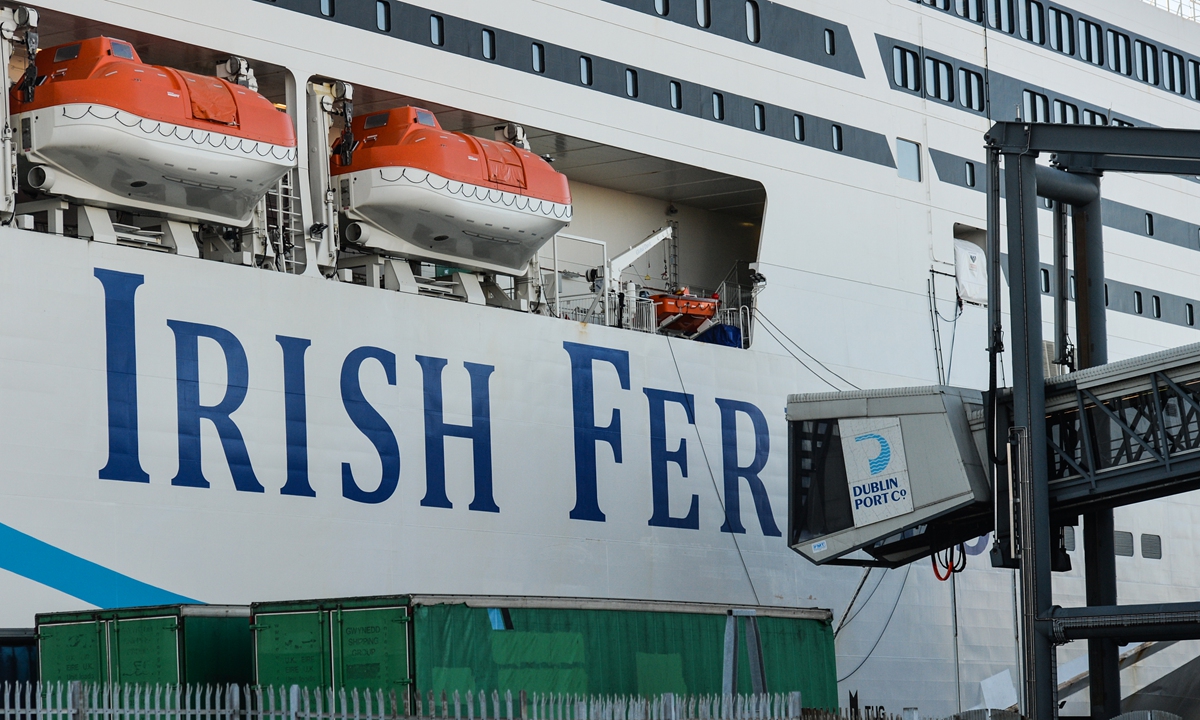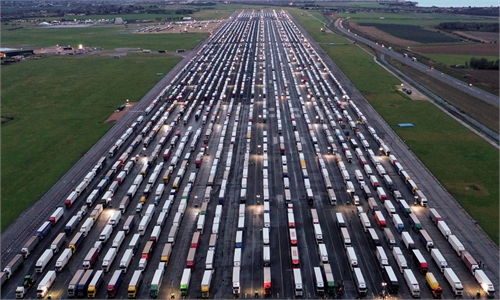
Ireland has ramped up direct shipping routes to mainland Europe since the end of the Brexit transition period, seeking new passages to the EU bypassing freight jams feared at UK borders. Photo: VCG
Many British businesses are swiftly discovering that they must now pay duties on exports bound for the EU, despite the breakthrough Brexit free trade deal clinched over Christmas.
The development, which has already helped spark sliding freight traffic to Ireland, is part of trade disruption that has become increasingly evident in 2021 after Britain's Brexit divorce was finalized on December 31.
Trade has also been badly hampered by new COVID-19 border restrictions, with the rollout of testing for lorry drivers as Britain races to curb a rampant variant of the deadly virus.
At the heart of the Brexit deal, which came into force on January 1, is the so-called rules of origin condition applied to all goods crossing the border.
The rules of origin, a key aspect of all major trade deals, can rapidly turn into a costly headache for businesses.
Under the Brexit provision, any good will be subject to a customs levy if it arrives in Britain from abroad and is then exported back into the EU.
For example, if a British clothing retailer imports Chinese-made textiles, it would then have to pay a customs charge if it ex-exports the items into a member nation of the EU's single market and customs union.
Put simply, the rules therefore determine whether an export is considered British or not.
The Brexit agreement, which was sealed four and a half years after Britons voted to leave the EU, grants zero customs duties if at least roughly 50 percent of an exported product is made in the UK.
That applies to the majority of UK exports - but certainly not all of them.
And the provision is all the more important because the EU accounts for more than half of Britain's trade.

